MB Rear Admiral Eduardo Augusto Wieland leads the naval component as UNIFIL-MTF commander. Diálogo: What is MB’s current participation in UNIFIL-MTF? Brazilian Navy Rear Admiral Eduardo Augusto Wieland, commander of the United Nations Interim Force in Lebanon’s Maritime Task Force: The Brazilian Navy contributes with the MTF Command and officers and noncommissioned officers of [ … ]
A Conversation With
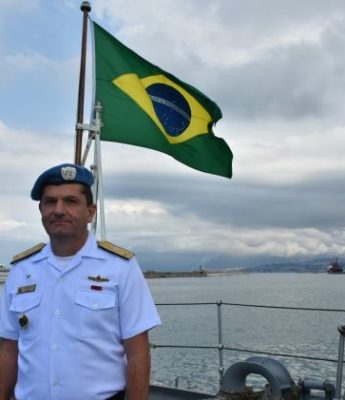
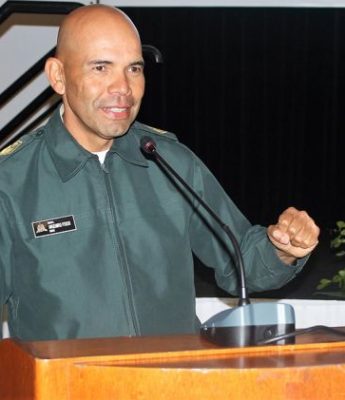
Colombia Has First Joint Command Sergeant Major
Diálogo: You are the first Joint Command sergeant major of the Colombian Armed Forces. What's the significance of this promotion? Colombian Armed Forces’ Joint Command Sergeant Major Argemiro Posso Rivera: I was promoted in March 2018, and it's an honor and great responsibility for me to be the first NCO promoted to [ … ]
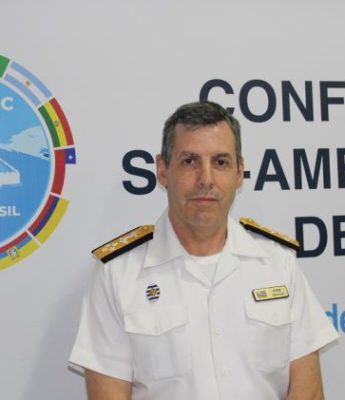
Interview with Admiral Fernando Pérez, head of Uruguayan Defense Joint Chiefs of Staff
Diálogo spoke with Admiral Fernando Pérez Arana, chairman of the Uruguayan Defense Joint Chiefs of Staff, during the South American Defense Conference (SOUTHDEC), held in the city of Natal, Brazil, in August 2019. Diálogo: What are your immediate goals as chairman of the Uruguayan Defense Joint Chiefs of Staff? Admiral Fernando Pérez [ … ]
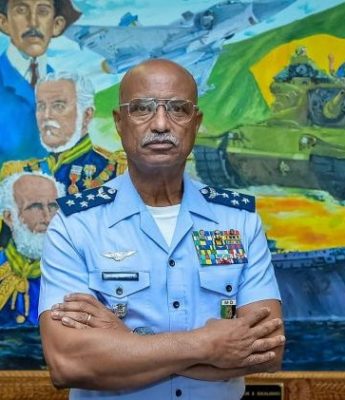
Transnational Organized Crime, One Of The Greatest Threats To South America’s Security And Stability
Brazil co-hosted the sixth South American Defense Conference (SOUTHDEC) in the city of Natal, in Rio Grande do Norte. SOUTHDEC, co-sponsored by the U.S. Southern Command, was created to discuss topics that affect the stability and security of Western Hemisphere nations. This edition, which was held in Brazil for the [ … ]
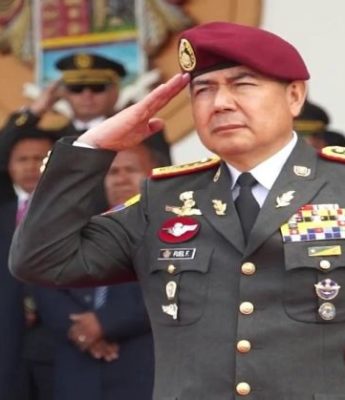
Current Scenarios Represent Great Challenges for Countries in the Western Hemisphere
In Ecuador, the Armed Forces Joint Command’s director of operations, or G3, is responsible for advising and taking part in the planning, preparation, and execution of military operations at the strategic level as a member of the Operational Joint Staff. Their role is to assist in decision-making, command and control, [ … ]
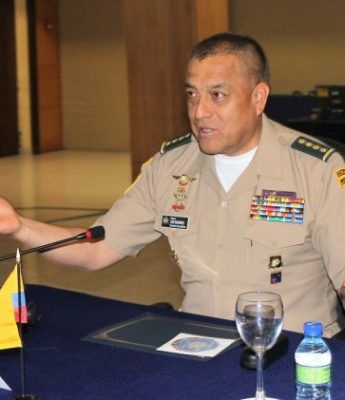
International Cooperation Key to Addressing Venezuelan Humanitarian Crisis
Diálogo: What is Colombia's contribution to the Venezuelan crisis? Army General Luis Fernando Navarro Jiménez, commander of the Colombian Military Forces: It’s a tragedy what the Venezuelan people are going through right now. This crisis is causing serious problems for the countries that share borders with Venezuela, but the crisis also [ … ]
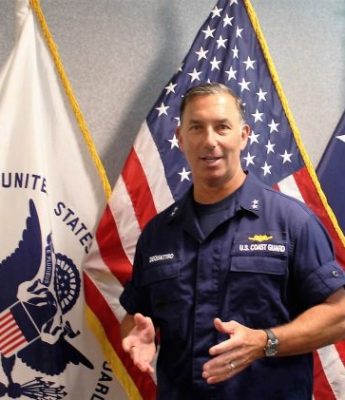
JIATF South: The Strength of Relationships
Joint Interagency Task Force South (JIATF South) conducts detection and monitoring operations of illicit trafficking in the air and maritime domains throughout the U.S. Southern Command’s (SOUTHCOM) area of operations. U.S. Coast Guard Rear Admiral Pat DeQuattro, JIATF South Director, spoke with Diálogo during a visit to their installations at [ … ]
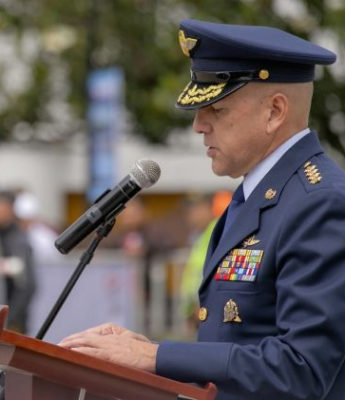
The Colombian Air Force: 100 Years of Existence in Style
The Colombian Air Force (FAC, in Spanish) celebrated 100 years of existence. Its commander, General Ramsés Rueda Rueda, presided over the official ceremony next to Colombian President Ivan Duque and Defense Minister Guillermo Botero, July 13, at the 5th Air Command headquarters, in Rionegro, Antioquia. The celebration took place during [ … ]
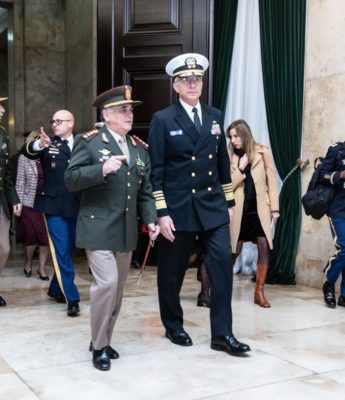
SOUTHCOM Commander Discusses Security in Argentina
U.S. Navy Admiral Craig S. Faller, commander of U.S. Southern Command (SOUTHCOM), visited Argentina in late June. Adm. Faller met with Argentine Army Lieutenant General Bari del Valle, chairman of the Armed Forces Joint Chiefs of Staff, and Minister of Defense Oscar Aguad, as well as other Argentine military leaders. [ … ]
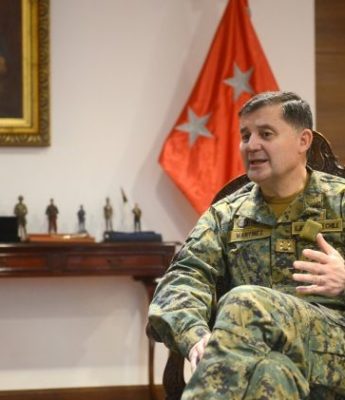
Chilean Army: Committed to Capacity Building, Interoperability
Since assuming command in March 2018, Army General Ricardo Martínez Menanteau, commander of the Chilean Army, has focused on an institutional challenge: to continue professionalizing his personnel to confront future challenges. Transforming the curriculum of officers and noncommissioned officers (NCOs) and continuous capacity building are his priorities. Diálogo spoke to [ … ]
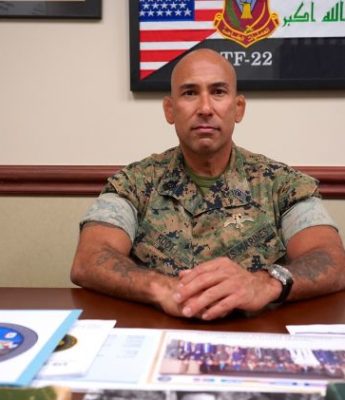
Senior Enlisted Leaders Boost Joint and Multinational Team Effort
U.S. Marine Corps Master Gunnery Sergeant Jerome N. Root, command senior enlisted leader, Special Operations Command South (SOCSOUTH), spoke with Diálogo during the Senior Enlisted Leaders Seminar, held during Fuerzas Comando 2019, June 24-28 in Santiago, Chile, where he shared his views on the professional development of noncommissioned officers (NCOs) [ … ]
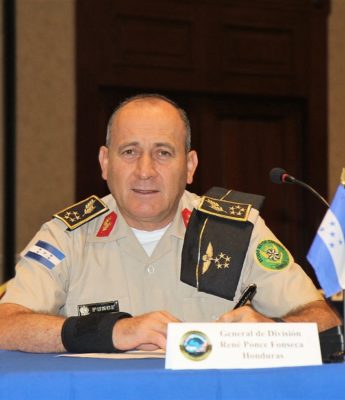
Honduras, Committed to Interoperability
Army Major General René Orlando Ponce Fonseca, head of the Joint Chiefs of Staff of the Honduran Armed Forces, is committed to interagency operations to combat transnational criminal organizations, and more specifically drug trafficking. The National Interagency Security Force (FUSINA, in Spanish), the Guardians of the Homeland program, and border [ … ]






